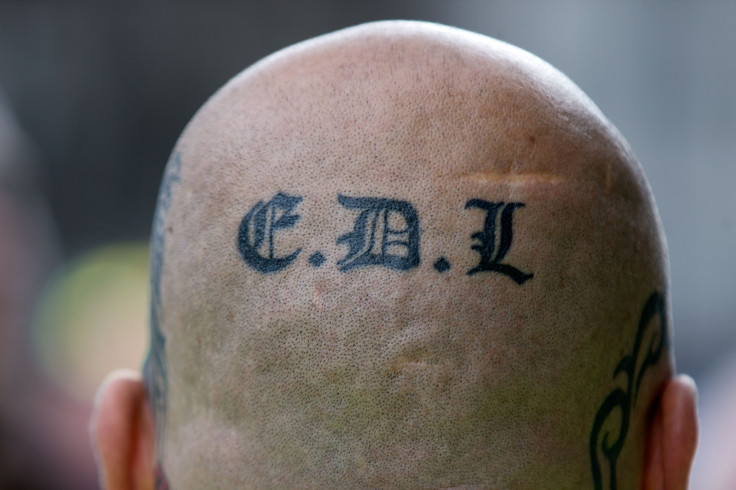I'm a Muslim-Jewish-Christian Londoner. Where do I belong?
We are being threatened on two ideological fronts: foreign-born terrorism and homegrown racism.
On the first day of my Master's degree in terrorism here in London, my course director asked each of us to say something interesting about ourselves to break the ice.
This was going to be a year studying Muslims, Jews, and Christians, and being a descendant of Muhammad (via Iran), the grandson of a Holocaust-fleeing Jew (via Germany), and the great grandson of a Protestant vicar (via England), I obviously had to reference my heritage.
It worked and broke the ice. People laughed and remembered it, while old classmates still bring it up in conversation. And every time a week like this happens – the week after a mass casualty terrorist attack on a Western city, the French city of Nice this time – I can't help but think of my heritage and my identity.
I have never felt at home in little England. I have never been able to identify with the flag of St. George's Cross. To me – right or wrongly – it represents small town mentality, racial intolerance and hooliganism.
The Union Jack of Great Britain was different. It was the symbol of a group of distinct but united peoples. It was the symbol of a country that embraced diversity and difference. It was the symbol of a country that I felt a part of and celebrated: outward looking, modern, confident, and cosmopolitan. Not just a nation-state but a member of a broader non-military coalition. The morning of 24<sup>th of June and the British rejection of unity with Europe broke that vision; the Union Jack became just another parochial flag.

London, however, is my home. London is – and I hope always will be – a place that embraces and supports everyone no matter who they are or where they come from. It is a city of the world; in my opinion, the greatest city.
But weeks like this make me nervous for that social harmony. The frequency with which terrorism strikes the West alongside the inevitable rise in intolerance after such events makes me even more nervous.
I'm somewhat used to intolerance. I still remember the first time, aged eleven, that I was chased down the street by kids, shouting "Paki" at me. As a teenager I came to accept that if I didn't shave regularly I had to get used to people looking at me nervously on public transport and actively moving themselves to get a clear view if I reached into my bag for anything.
As an adult running a design and marketing business with a global set of clients, I mentally prepare myself each time I get on a plane for the inevitable questions and searches. Border control in the US – my most frequent destination – has never been an issue; it's getting on the plane in the first place that is the stressful part.
Still it doesn't compare to the Israelis who, I'm very pleased to report, reduced my detention time by 25 per cent on my last visit. Despite the improvement in efficiency, three and a half hours sat without my passport, held in a Ben Gurion holding pen, is not something I'd like to repeat again.
The Japanese have been my favourite to date: they could not have been more polite when asking me to open up my bags. I wish that politeness was applied globally.
Weeks like this week catalyse the degradation of cultural and ethnic unity in the West
Weeks like this week catalyse the degradation of cultural and ethnic unity in the West. Weeks like this week make me wonder whether London will continue to be a place I can call home, that I feel safe in, where I don't have to deal with people stopping me on the street to question my political beliefs based on their skin-deep perception of what I am.
Where do we, the children of globalisation, go when intolerance rears its ugly head? Where do I go?
Academic Louise Richardson argues that terrorists want three things: revenge, renown and reaction. The Nice attacker has already had his revenge, with 84 dead at the current count (with a significant number of Muslims). The media and the internet will provide him with renown. And the Trumps, Flynns, Le Pens, Farages, and Gingrichs of the world will provide him with a reaction. This will likely contribute to the next Nice, the next Brussels, the next 7/7, or the next 9/11.
Weeks like this week give the toxic far-right the oxygen it needs to spread the flames of intolerance and hate.
A few days after the events of 7 July 2005, a group of friends and I returned from a three-week trek through the Malay jungle and headed to a bar. As we looked at the TV, physically exhausted, we broke down in tears watching the replays of the aftermath of the London bombings.
When I woke up the morning after the Nice attack, I felt like crying those same tears again. I didn't well up for Nice, though I feel their pain strongly and dearly. I welled up because the delicate cultural framework on which the West is built is breaking. I welled up because London, the city that I call home, is threatened on two ideological fronts: foreign-born terrorism and homegrown racism.
I felt like crying because I fear for what the future holds when racist rhetoric is not just openly and readily espoused in both British and American political spheres, but accepted by large numbers of our respective electorates.
How much longer can we, in the West, call ourselves the moral and ethical leaders of the world? And what happens to people like me - with my Iranian-Muslim, German-Jewish and Anglo-Christian heritage - if the racists ascend the throne?
Tom Hashemi is director of We Are Flint
© Copyright IBTimes 2025. All rights reserved.




















